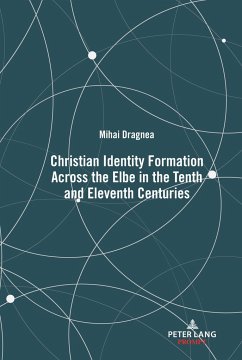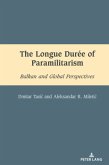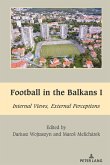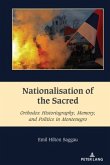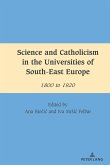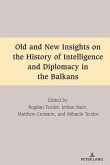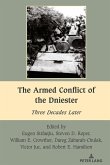This book addresses the conversion of the Wends, and how Christian writers of the tenth and eleventh centuries perceived the submission of the Wends to the Christian faith. The main concern of the ecclesiastical authorities was to bring the apostate Wends back into the imperium Christianum: everyone who had accepted Christian baptism had to be prevented by all possible means from religious and political apostasy. More widely, the formation of a Christian identity is an excellent example of how conversion was a fluid set of propositions, discussed and rehearsed, influenced by many factors (not just canonical), and deployed in many contexts. This book's task is to unravel how this dynamism played out against a marginal group.
Reviewed in English by Aleksander Paron, Speculum, Vol. 99, No. 2 (2024): 567-568; Miroslav Atanasov, Religious Studies Review, Vol. 49, No. 3 (2023): 39; in German by Felix Biermann, Baltische Studien. Pommersche Jahrbücher für Landesgeschichte, Vol. 108 (2022): 201-203; in English by Antoni Grabowski, Acta Poloniae Historica, Vol. 125 (2022): 206-262, Marian Dygo, Zapiski Historyczne, Vol. 87, No. 4 (2022): 145-151, David Kalhous, Historia Slavorum Occidentis, Vol. 1, No. 32 (2022): 186-188 and Tomislav Galovic, Journal of the Institute of Croatian History, Vol. 53, No. 2 (2021): 316-318; in Czech by Jaroslav Vokoun, Studia Theologica, Vol. 23, No. 4, (2021): 155-157; in Slovenian by Simon Malmenvall, Bogoslovni vestnik, Vol. 81, No. 1, 2021, pp. 250-252).
Reviewed in English by Aleksander Paron, Speculum, Vol. 99, No. 2 (2024): 567-568; Miroslav Atanasov, Religious Studies Review, Vol. 49, No. 3 (2023): 39; in German by Felix Biermann, Baltische Studien. Pommersche Jahrbücher für Landesgeschichte, Vol. 108 (2022): 201-203; in English by Antoni Grabowski, Acta Poloniae Historica, Vol. 125 (2022): 206-262, Marian Dygo, Zapiski Historyczne, Vol. 87, No. 4 (2022): 145-151, David Kalhous, Historia Slavorum Occidentis, Vol. 1, No. 32 (2022): 186-188 and Tomislav Galovic, Journal of the Institute of Croatian History, Vol. 53, No. 2 (2021): 316-318; in Czech by Jaroslav Vokoun, Studia Theologica, Vol. 23, No. 4, (2021): 155-157; in Slovenian by Simon Malmenvall, Bogoslovni vestnik, Vol. 81, No. 1, 2021, pp. 250-252).

